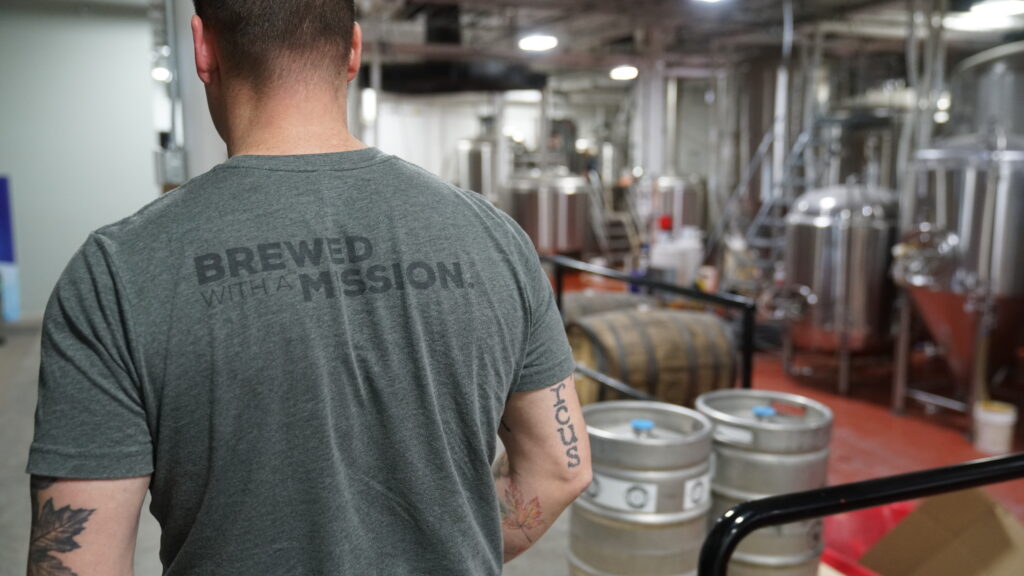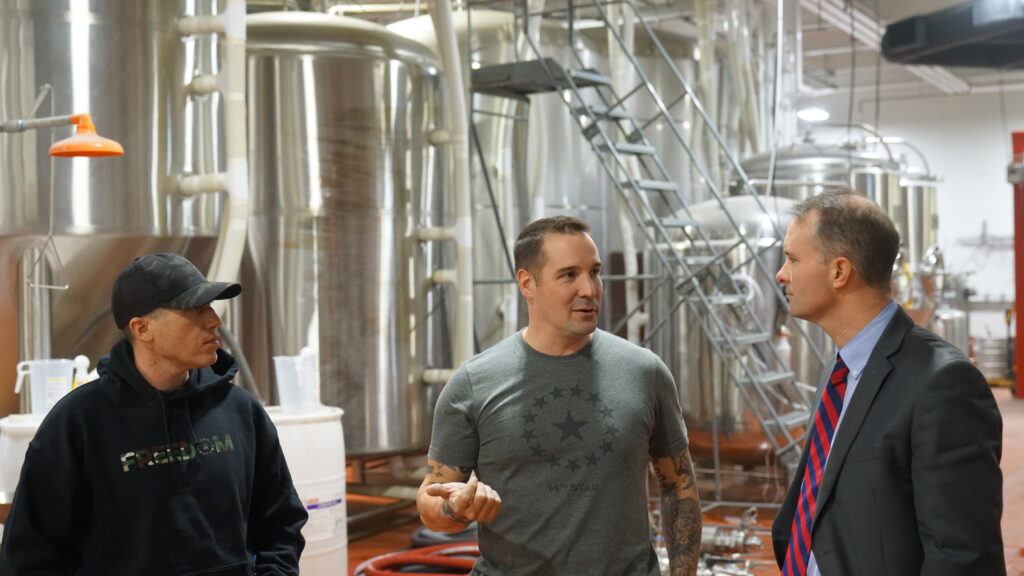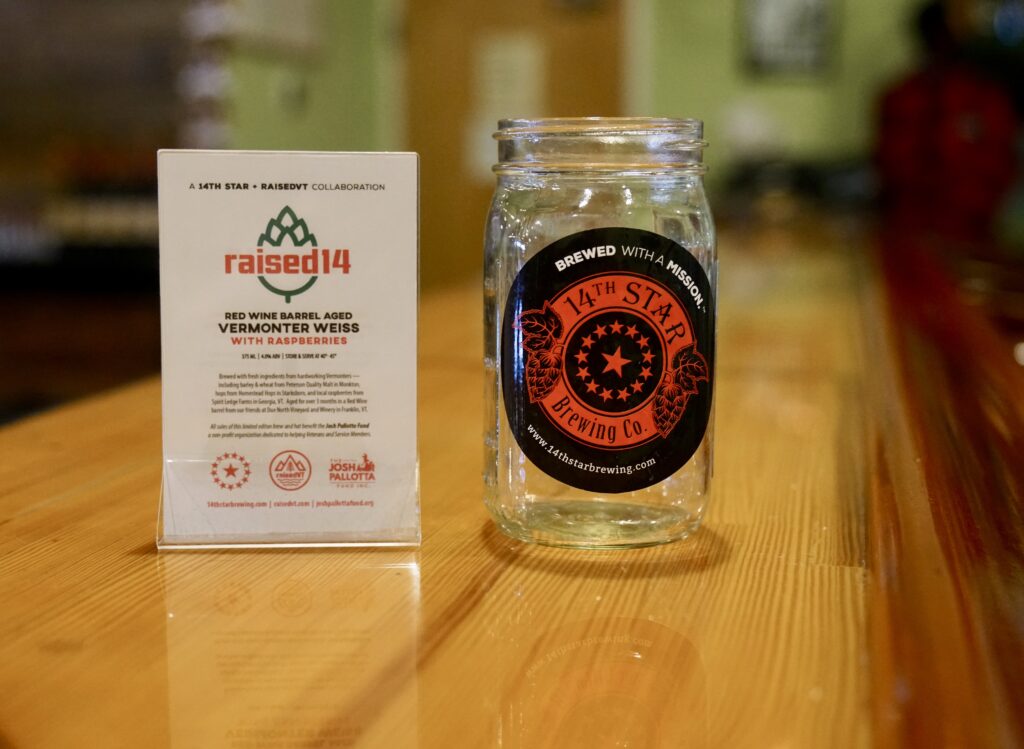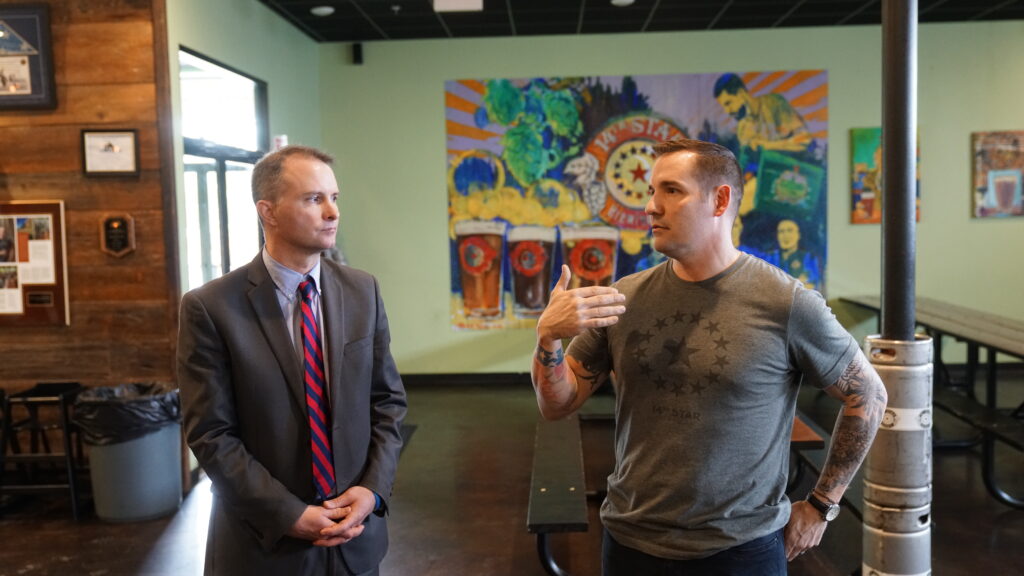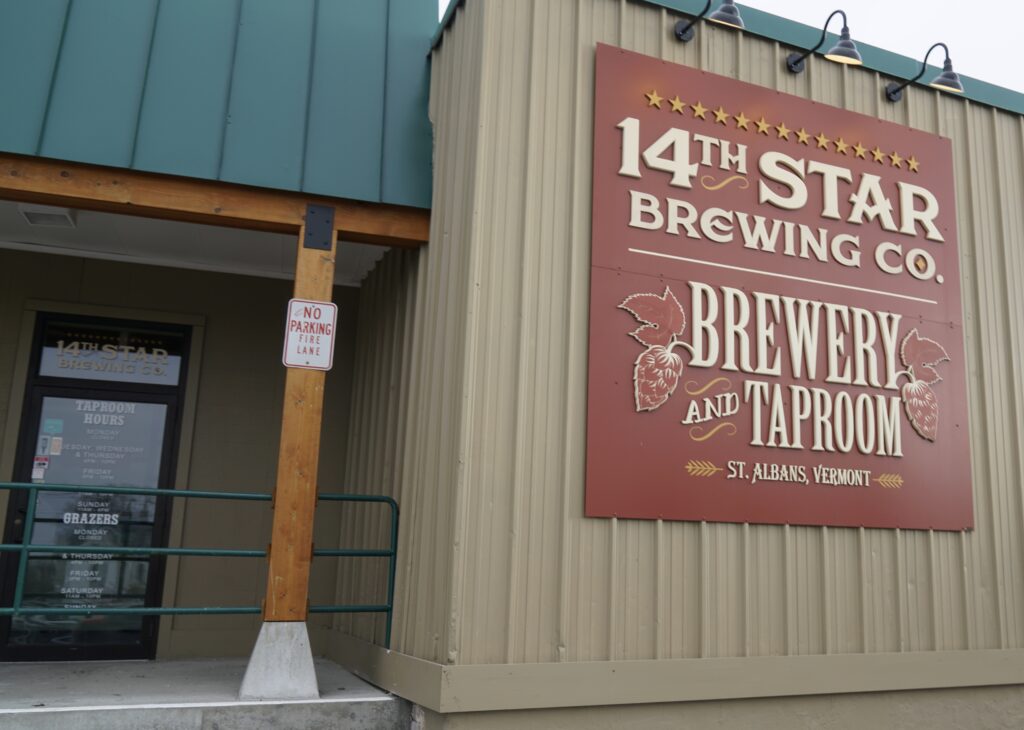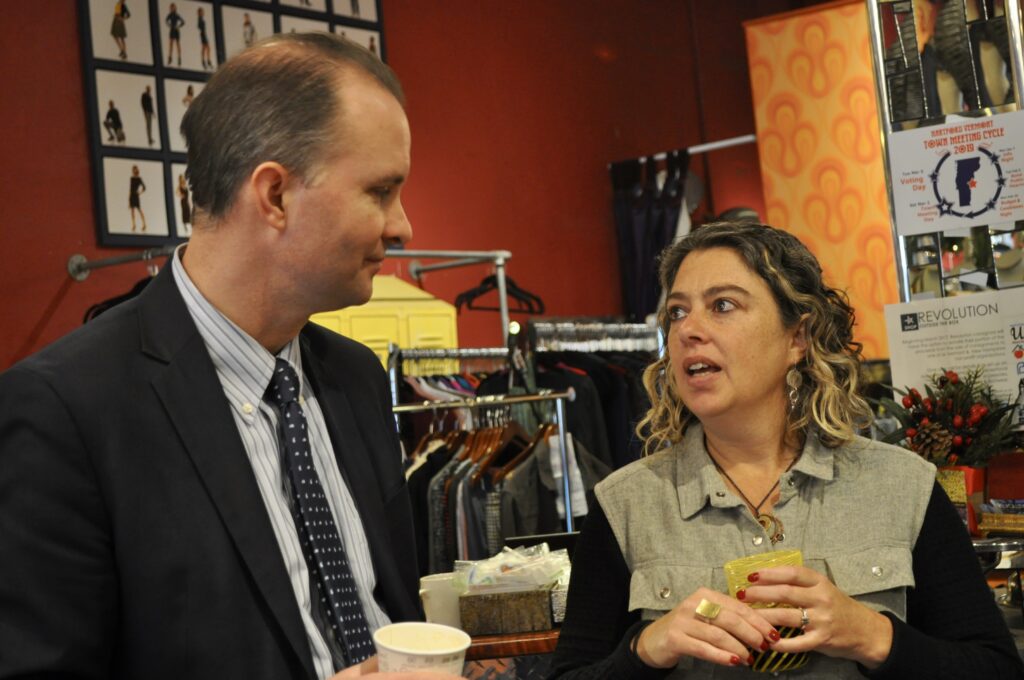
This is a monthly series in which the Attorney General will feature a Vermonter doing exemplary work in their community. Have someone you think should be featured? Email AGO.CAP@vermont.gov.
Our January Vermonter of the Month is Kim Souza, founder and co-owner of Revolution, a consignment and thrift shop in White River Junction.
Business owner, select board member, community activist, and all-around dedicated neighbor, Kim Souza started Revolution in White River Junction, Vermont 17 years ago. Kim was makes running a small business in rural Vermont look easy. Kim’s creativity in expanding her business, perseverance, and commitment to the wider Hartford community is why she is our January Vermonter of the Month.
Through Kim’s community engagement, her business has become a cornerstone of the downtown life of White River Junction. Community members often drink a cappuccino at the small counter at the back of the store while consigning clothes or stop in just to say hello over a cup of coffee. Revolution regularly hosts neighborhood events including their First Friday parking lot parties and community fashion shows. See what Kim had to say in our interview with her below:
How did you end up in Vermont and what made you stay?
Born in Rhode Island, and raised in Canaan, New Hampshire, I developed ‘Vermont envy’ in my teenage years. Having grown up in rural New Hampshire, I embarked on the classic early 20s cross country adventure, only to be offered the most promising professional opportunities right back here in the Upper Valley.
What have you learned from your work as a small business owner? Has it changed your perspective on your community?
I’ve definitely learned that operating a small business is more about maintaining a wonderful quality of life than it is about financial security. My previous career path had been satisfying and fiscally sustainable, but something was missing. In that experience, I was selling my time in exchange for a sense of security for my family. What I was lacking was precious time with my new child and a sense of joy in my day-to-day movements. In the small business world, eventually, I was able to coordinate a schedule that allowed me to spend more time with my son and to connect, face to face, with the charming White River Junction community.
After 16 years, I still love coming to work every day! That is my personal success.
What made you start a small business in White River Junction Vermont?
I returned to New Hampshire from Los Angeles with two job offers and chose one that I enjoyed for 12 years. I worked with a fledgling educational travel company as an administrative assistant in a company of two employees; myself and the owner. Ultimately, I learned every aspect of that small business, from bookkeeping and marketing, to sales and program development as we grew the company together. I considered my experience there to be the equivalent of an MBA when I left the position of Senior Vice President in 2002 to pursue something more suited to my creative social strengths.
With the guidance of a friend and business mentor, I brainstormed several potential career paths and settled on the idea of a ‘hip vintage thrift boutique’ in the style of my favorite shops in Montreal and New York City. I was negotiating a very expensive lease in Hanover, New Hampshire, when my mentor suggested that I take a look at White River Junction. I thought he was nuts but trusted his instincts and spent some time in the downtown of 2002 when things were still pretty ‘gritty.’
Briggs Ltd Department Store closed after 50 years of retail operation in April of 2002, and I opened Revolution that June in that location– across the street from one of the two White River Junction strip clubs! With my first business plan complete, I was convinced that what I would save on rent, I could spend on marketing and become a destination location.
The strip clubs have since closed, and after many years of ‘one-step-forward-two-steps-backward’ development, our village has grown at a healthy pace with attention to keeping our ideals at the center of our goals.
I have never regretted the decision to open my small business in White River Junction!
We love your “White River Junction- It’s Not So Bad” T shirts. What is the story behind this?
A lot of organic idea sharing happens around the espresso counter at Revolution. I’m pretty sure it was one of the stream of consciousness taglines that friend and local developer, Matt Bucy coined. Another one of my favorites of his is “White River Junction… Coming Soon!”. The ‘…Not So Bad’ tagline just kind of caught on. One common thread among the downtown White River Junction community members is that we like to do things because they feel good and we try not to take ourselves too seriously. I think the tagline sums up that sentiment.
What impact has your store had on your community?
One surface impact that Revolution has on the community is simply our willingness to hang in there. The store was notfinancially sustainable in the early years, and I planned to close in 2006. Again, I felt as though my experience had served as a supplement to my ‘education’ and looked forward to my next move. I was fortunate to have been offered some decent positions as a result of working multiple part-time jobs while attempting to raise my son and keep my business afloat. I had options.
And then… A local family approached me and asked, “What would it really take to keep Revolution open?” This was pretty remarkable considering that this was simply a funky little used clothing store in the middle of a defunct railroad town. After many cups of coffee and various spreadsheets and projections, we came up with a figure. The figure was substantial and, I asked, “why don’t you just buy my business from me instead of investing in one with a partner (me) who brings only debt to the table?” My (now) business partner noted that she didn’t want to run the store and that she didn’t want to own one unless I was the one operating it. She recognized my entrepreneurial enthusiasm and my willingness to step up to the challenge of evolving a little consignment shop into something special.
On a similar note, I said that if they were expecting some great financial return on their investment, we should probably skip the endeavor, but if they were interested in investing in a genuine sense of community, then we could do great things together! They opted for the latter and we have strengthened the community in many ways since.
Over the years, it’s been fascinating to watch the changes in the Town of Hartford. My willingness to stay anchored on the corner of North Main Street has inspired others to consider dipping their entrepreneurial toe into the White River Junction commercial waters. I recently did an informal count of over two dozen woman-run businesses, just in the downtown White River Junction area. To me, that’s amazing!
It’s true what they say…. Artists will go where the rent is cheap. The artists make the landscape more interesting and attractive. Then, the developers come in, build and gentrify, and then the artists can no longer afford to live there. I’d like to think that Hartford values its arts community and recognizes that keeping our village centers affordable and accessible is a priority in economic development.
Being on a first name basis with at least five of the developers in our area is something worth noting. They are accountable to their community because they live here, and they too appreciate this quality of life.
What are some of your goals for the coming year in terms of your work in the community?
I’m always interested in healthy and equitable economic development. We are fortunate in the Town of Hartford to include five distinct villages which complement each other in terms of their residential/rural character and connectedness to industrial and commercial areas throughout the Upper Valley. In 2019-20, I’ll be focused mainly on infrastructure improvements within the downtown White River Junction area in order to attract more independent businesses and accessible affordable housing. We’re implementing plans and funding for improved distribution of water, wastewater and sewer in the downtown area, and funding preliminary engineering studies for increased parking capacity.
I will continue to seek input from our most vulnerable community members and be sure that their wellbeing is considered each time decisions are made in the context of our municipal accomplishments.
My immediate goal as a business owner is to increase our exceptional team of employees to allow me to spend more time working with grassroots organizers and take advantage of educational opportunities to become a better citizen.
What are ways small businesses can be better supported by state government?
Capital, capital, capital! I’m not sure if state government has the answers but bridging the gap between folks with resources and folks with the ‘fire in the belly’ kind of spirit that it takes to really cultivate a culture of Vermont business is something that I think could be less rare. Sure, there are venture capitalists and networking opportunities, but somehow I envision a platform through which investors (such as the family who reached out to me) and entrepreneurs could engage and form relationships that are mutually beneficial, even if not financially lucrative. Community Investors, so to speak. Idealism is both my strength and my weakness!
What advice do you have for others looking to start a small business?
Start a small business only IF IT’S SOMETHING THAT YOU LOVE DOING. In my business, it’s not about pop culture or fashion trends. I couldn’t care less about those things. For me, it’s about inviting people in to my beautiful space to drink tea, try on clothes, and make genuine connections. I feel very lucky to be here.
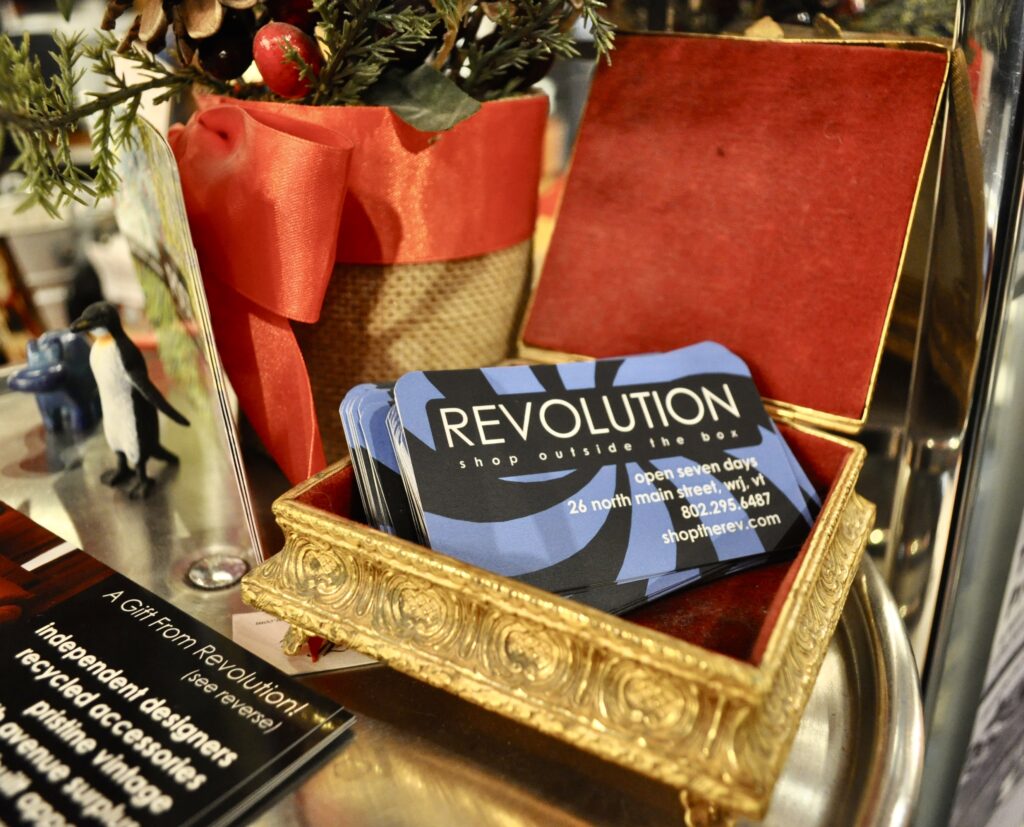
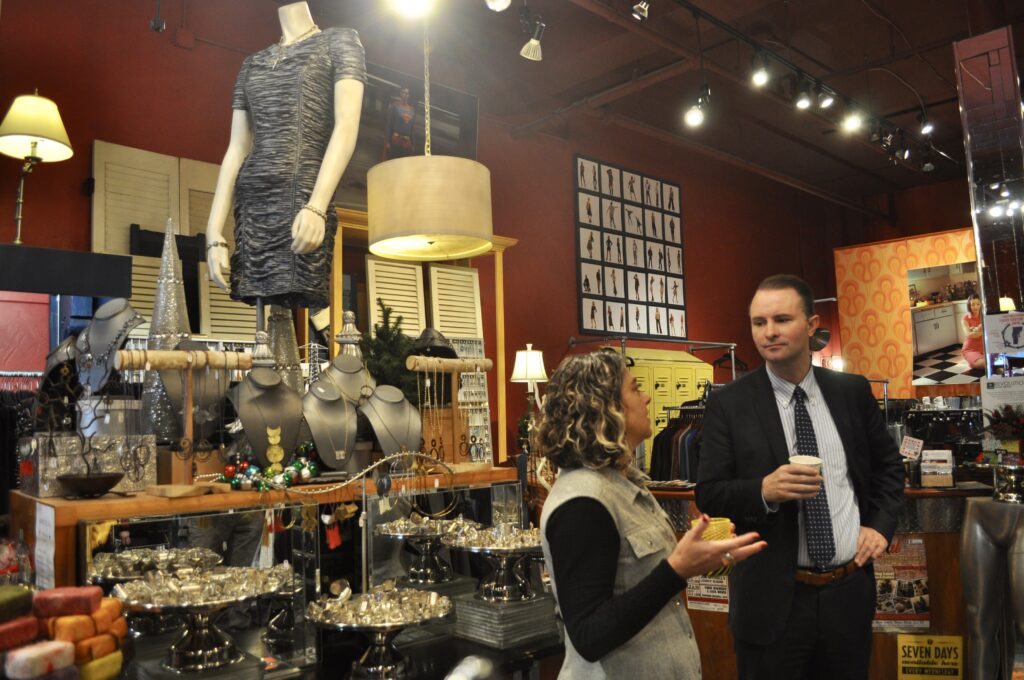
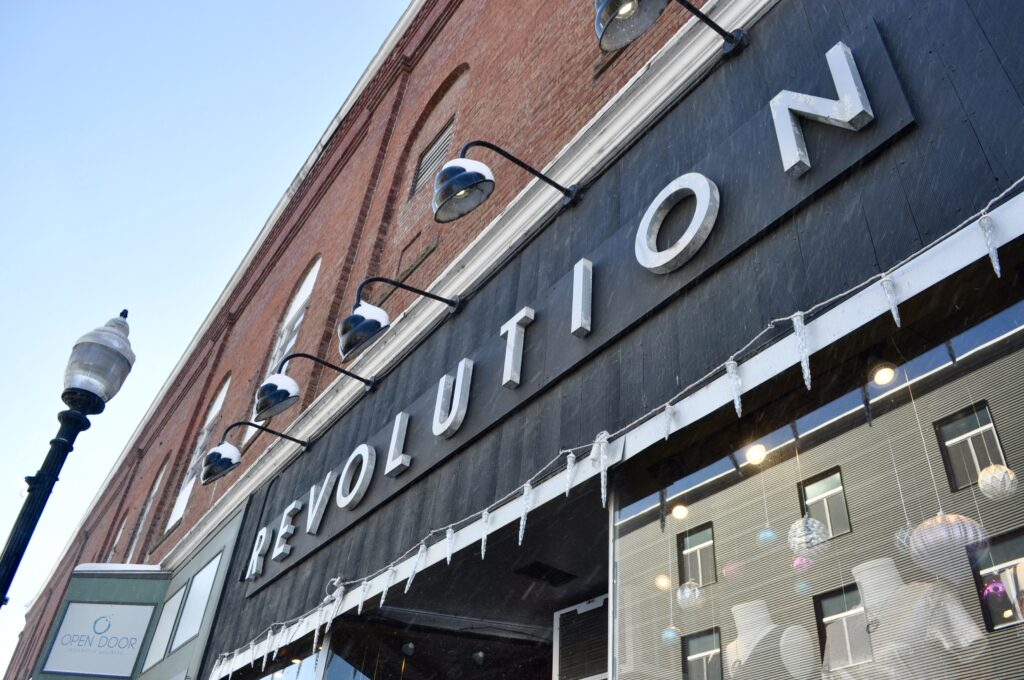
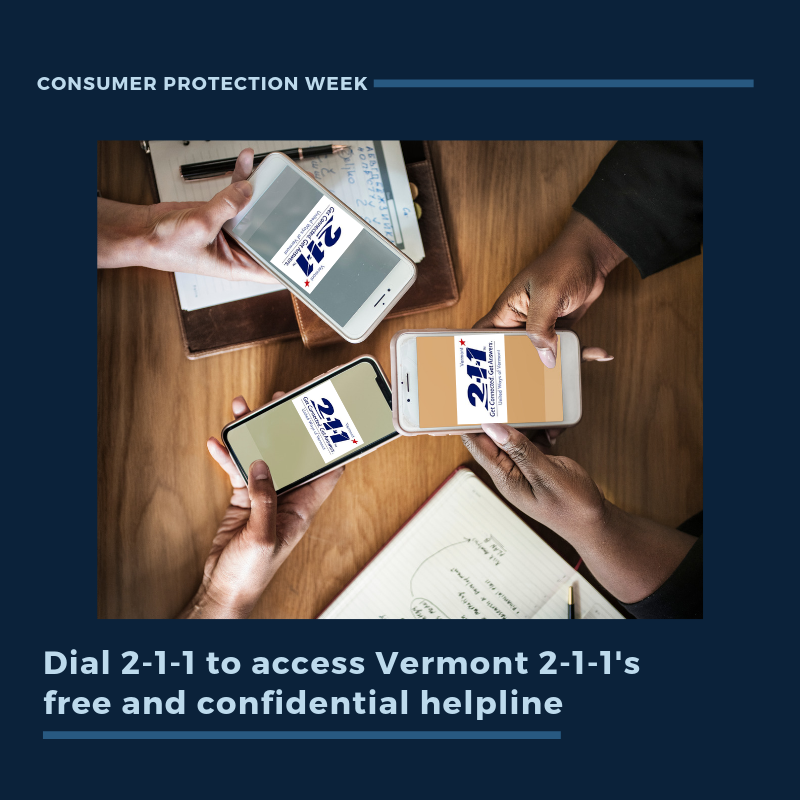

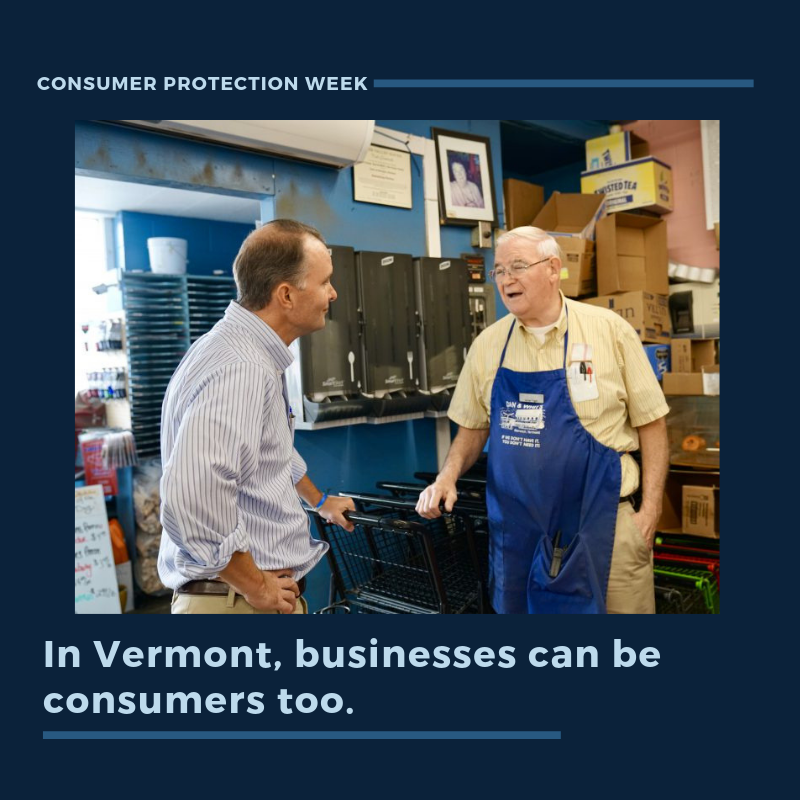
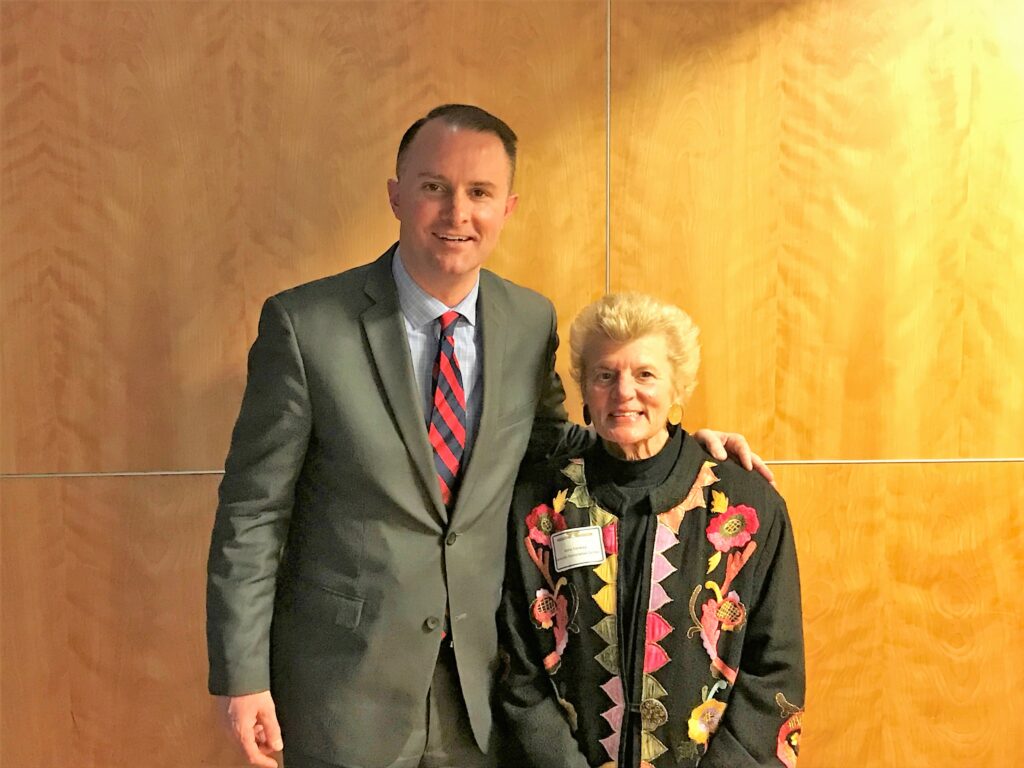




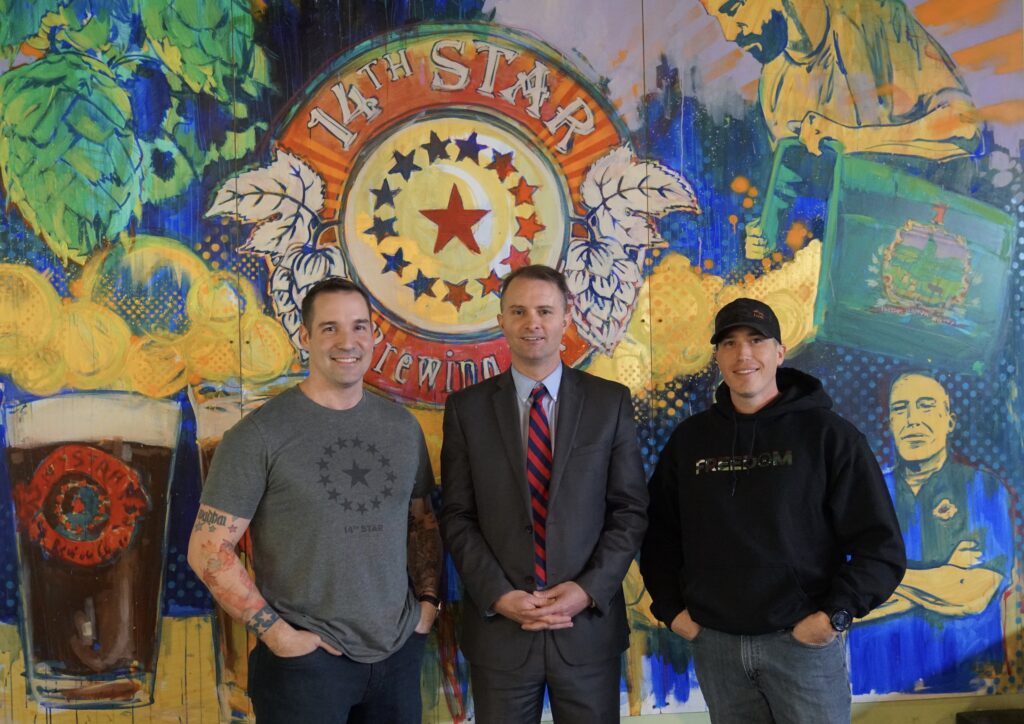 This is a monthly series in which the Attorney General will feature a Vermonter doing exemplary work in their community. Have someone you think should be featured? Email AGO.CAP@vermont.gov.
This is a monthly series in which the Attorney General will feature a Vermonter doing exemplary work in their community. Have someone you think should be featured? Email AGO.CAP@vermont.gov.